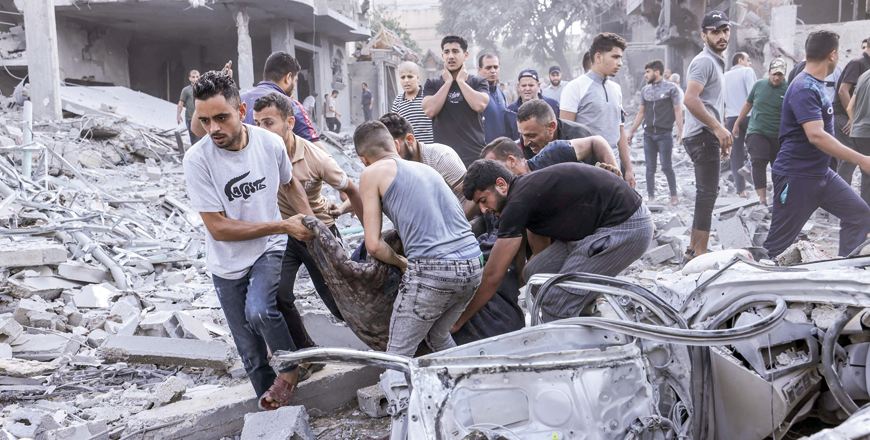AMMAN — The ongoing Israeli aggression on Gazans will leave a long-term impact on the social and mental well-being of Jordanians and will traumatise children exposed to scenes of assaults, experts say.
Despite the conflict in Gaza instilling a sense of unity and brotherhood among Jordanians, strengthening their solidarity towards the Palestinian people, experts believe that the war in Gaza will have a lasting effect on Jordanian society.
In particular, it is expected to endure trauma experienced by children who are exposed to violence, noting that the witnessing of violent events may leave lasting emotional scars.
Experts advise parents against allowing their children to access social media to watch violent imagery.
The close geographical proximity of Jordan to Gaza, combined with historical ties to the Palestinian population, has fostered a robust sense of solidarity within the Jordanian society. Therefore, Jordanians are responding to their empathy and distress by taking to the streets and engaging in public demonstrations as an expression of their solidarity with the Palestinian people.
Sociologist Hussein Khuzai told The Jordan Times that the impact of the conflict on Jordanians is expected to be tremendous.
“The intimate connection between Jordanians and Palestinians, coupled with the shocking nature of the events, underscores the emotional impact of the conflict on Jordanian society,” Khuzai added.
Khuzai further explained that feelings of helplessness, a common emotional response when witnessing suffering among a group with whom one shares strong cultural, historical, or familial ties, have left many Jordanians frustrated and angered.
Khuzai also emphasised the significant role played by the media, including social media and news agencies, in shaping public opinion and emotions.
“The constant broadcast of images and videos, particularly those depicting harm to children, is indeed emotionally distressing and fuels public outrage,” added Khuzai.
In a somewhat contrasting perspective, Khuzai noted that Jordanians appear to admire the resilience and determination of Palestinians in the face of adversity.
Meanwhile, psychologist Musa Matarneh underlined the psychological impact of exposure to violence, especially in a country where Jordanians share blood ties and hold common social and cultural values.
“It can lead to anxiety, stress, and a pervasive sense of insecurity, which can persist long after the conflict subsides,” Matarneh told The Jordan Times.
Matarneh highlighted that conflicts in neighbouring countries disrupt the social fabric of communities, resulting in fear, mistrust, and divisions. “These outcomes can erode the sense of social safety and protection within a community,” he said.
Matarneh stressed the vulnerability of children to the negative effects of conflict on their mental and emotional well-being.
“Witnessing or experiencing violence scars children emotionally, affecting their sense of safety and trust,” said Matarneh.
“The suffering witnessed in the Gaza conflict is exacerbating a universally felt human vulnerability to the plight of others, which is exacerbated by witnessing what appears to be genocide in Gaza,” he added.
Matarneh expressed that Jordanians are deeply shocked by the dire conditions in Gaza, including starvation and deprivation. These circumstances deeply distress observers and evoke strong emotional reactions, he added.
Matarneh predicts that the psychological impact of the Gaza conflict on Jordanian society will be long-lasting.
“Prolonged exposure to traumatic events, feelings of helplessness, and a deep emotional connection to the situation will result in enduring psychological effects on Jordanians,” said Matarneh.
He highlighted the enduring trauma experienced by children who are exposed to violence, noting that the witnessing of violent events may leave lasting emotional scars.
“Parents are advised against allowing their children to access social media or watch violent video clips from Gaza,” he said.
